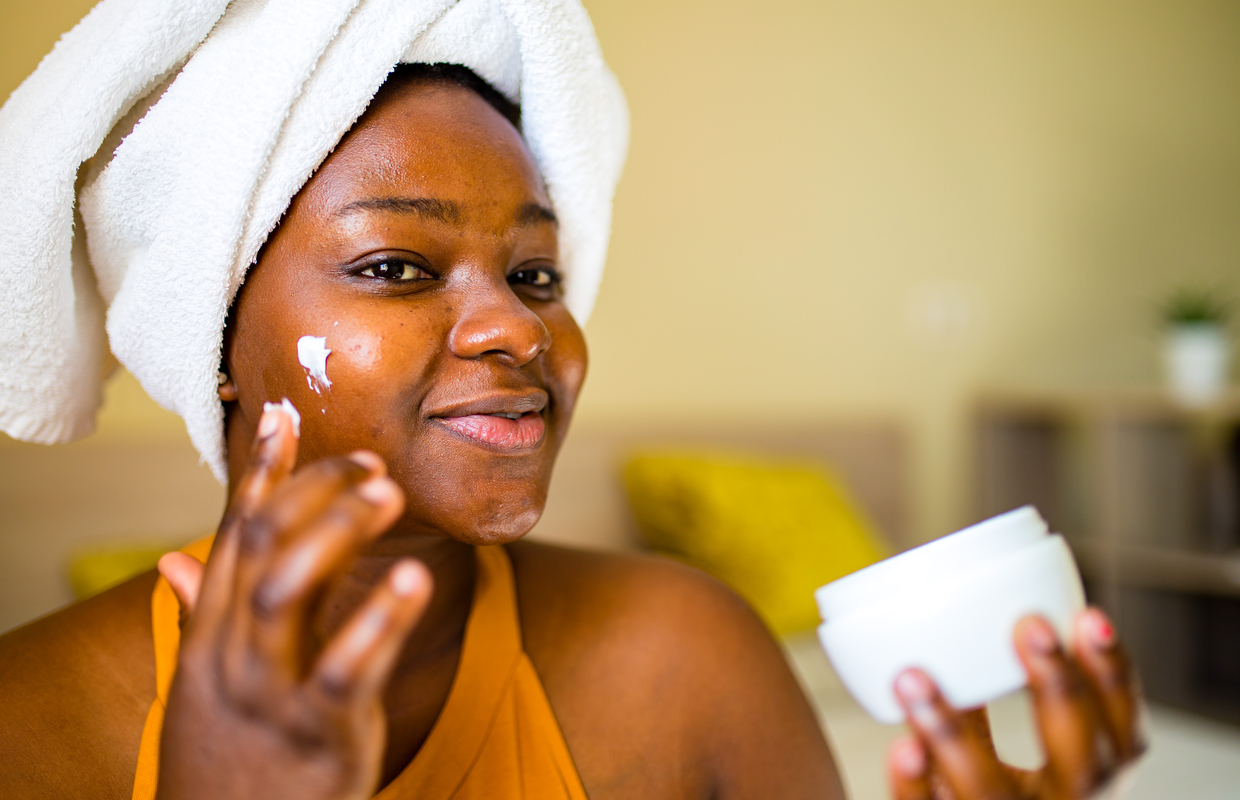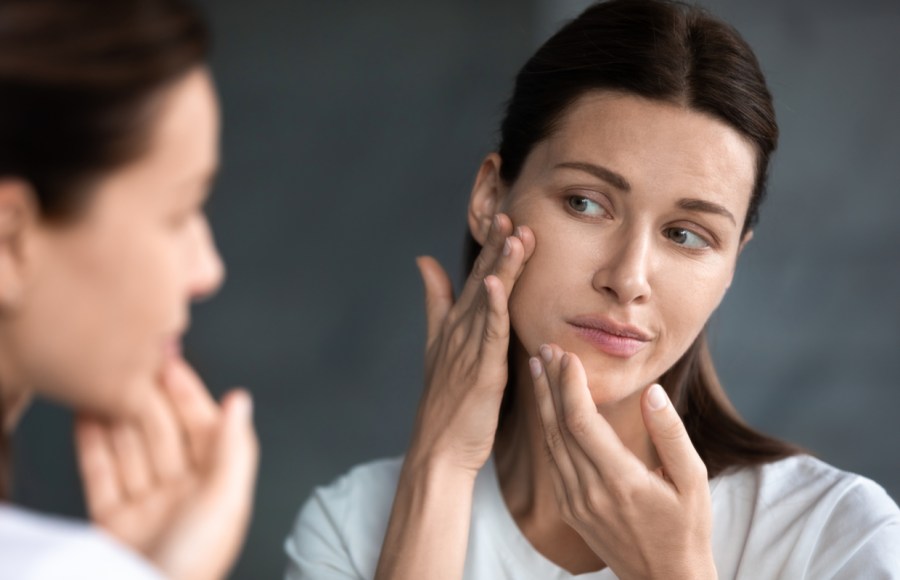Did you know, certain skincare habits can trigger eczema? If you struggle with red, itchy and inflamed skin, read on to discover which harmful skincare habits you should be ditching…
1. Avoid hot showers to avoid triggering eczema flare-ups
During showers, exposure to hot water temperatures can increase in skin barrier damage. This is because the outer layer of the skin, the skin barrier, is composed of dead skin cells (anucleated corneocytes) surrounded by a lipid matrix.
Hot water interferes with these lipids and compromises the skin barrier function. This leads to inflammation and water loss (dryness) and can affect DNA synthesis and lipid production in the skin.
During eczema flare ups, the skin is already in a compromised state with an impaired skin barrier, dryness, and inflammation. Try to reduce water temperature when in the shower, washing hands, or washing your face to protect your skin as much as possible.

2. Use oil-based moisturisers rather than water-based
The skin is naturally structured to bind and store water molecules. However, depending on skin health, you can easily lose this water through the epidermis. Humectants are ingredients that bind water and draw them into the skin.
For example, hyaluronic acid is a well-established cosmeceutical active that can bind 1000x its weight in water, but other humectants include sodium PCA or glycerin.
With eczema, transepidermal water loss is high, so preventing additional dehydration with gentle oil-based hydrators (those containing occlusive agents) will provide much greater benefit.
3. Avoid frequent cleansing on eczema-prone skin
Skin cleansers are essential in any skincare regime. They function to remove unwanted materials such as dirt, sweat, sebum and other oils from the skin. Cleansers are composed of surfactants, and in many cases, harsh surfactants can damage the skin barrier, its lipid components, as well as the pH of the skin.
During eczema flare ups, over cleansing or using aggressive cleansers has been linked with worsening of the condition. Avoid all cleansers that give immediate tightness or dryness, or those that have high foam. Try to reduce your cleansing frequency and reach for an emollient, oil-based cleanser. Follow this up with a rich hydrator.

4. Natural skincare products can trigger eczema too
While there is a myth that natural remedies are always the ‘better’ solution, this is not the case when it comes to skincare.
Many natural extracts contain active compounds that can strip skin barrier or exacerbate inflammation. For example, many natural products are high in allergens such as essential oils, or fruit enzymes and acids that will exfoliate the skin and worsen an eczema lesion.
All skincare products, natural or synthetic, are comprised of chemical substances. Many synthetic products are specifically formulated to reduce irritation on the skin. Always reach for simple and gentle formulation, irrespective of its origin.
5. Reduce your stress levels to avoid triggering your eczema
While there are many factors that contribute to the development of eczema, stress (both mental and physical) plays a role in the condition.
During periods of stress the epidermal skin barrier is impaired. This is because stress influences skin cell shedding as well as skin cell cohesion. Stress also induces inflammation and allergic responses within the skin and the release of inflammatory neuropeptides.
Introducing mindful and lifestyle practices to reduce mental stress or changing lifestyle factors such as diet, alcohol consumption, smoking, or investing in nutraceutical skin can help to calm eczema and reduce flare ups.
6. Don’t overdo it with active ingredients if you have eczema
Introducing new active ingredients into any skincare regime takes time. Whether it’s the anti-aging hero ingredient vitamin A (retinoids) that is known to cause initial irritation, or other actives such as vitamin C, growth factors, peptides, or exfoliating acids, the skin may need time to adjust.
Using too many active ingredients at the same time is not recommended for any skin types. This is beacuase it can lead to irritation.
If skin is particularly sensitive or prone to eczema flare ups, the focus should remain on calming inflammation and protecting and healing the skin. A simple skin regime comprised of adequate cleansing, moisturisation, and broad spectrum UV protection is sufficient.








